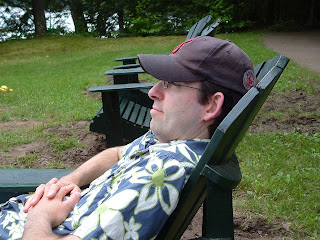I play board games on a very regular basis online via BrettSpielWelt (BSW), a German site with full implementation of a number of popular strategy games including Carcassonne, Settlers of Catan, Pandemic, and Dominion. I've learned each of those four games in person and only later played the online versions. Recently, however, Tom and I have taken to a new strategy for gaming on BSW, namely learning games we've never played before by starting them up on the site and playing through them with no previous knowledge of the rules. For lack of a better term I've been calling this technique 'blind learning.'
The Games...
For instance, several weeks ago we tried the simple 2-player strategy game Drachenherz. Simply by observing what the game system will allow us to do and analyzing the results of our actions we have been able to decipher the vast majority of the game (actually, with this title we're pretty sure we understand the complete rule set without having actually read any of the rules.)
After Drachenherz we jumped into Atlantis, a somewhat more complicated eurogame. Tom seems to have understood this one a bit better than I as he defeated me both of the time's we've played the game. I understand the basic concept and goal of Atlantis, but it will certainly take me at least a couple more plays to fully understand the rules governing the game, and to then actually start to develop an effective strategy.
Our latest attempt at blind learning a game through BSW was a fairly basic worker placement title that has been getting quite a bit of praise lately called Stone Age. This game was significantly more complicated than Drachenherz, yet considerably easier to learn than Atlantis. I'm not sure if this latter fact is due to Stone Age being a simpler game or perhaps just more intuitive. It is also possible that Stone Age is simply more similar to other games I've played (namely Agricola, which also involves worker placement) and therefore easier to understand right from the beginning.
My Thoughts...
- With blind learning alone I'm fairly certain it is possible to fully understand how to play any given game on BrettSpielWelt. Some details required to play the actual physical board game, however, may not be fully clear from simply playing online. The most obvious incidence of this phenomenon is in game setup. In Pandemic, for instance, the player deck of cards has to be constructed in a particular way that may not be fully understood with only BSW play as reference. The particular rules governing how many special event cards to include and how to select them, and when and how to distribute the epidemic cards seem to require some reading of the rules.
- Combined with reading the actual rulebook after playing through a game several times, this method has great potential as a way to learn new board games before I buy. With the traditional way of learning a new game (buying, reading rules, playing through game to understand) it can often take a great deal of effort to comprehend how the rules translate into game play. Using this blind learning technique I can experience game play (though without fully understanding it) and only then read the rules to clarify what I've already experienced.
- Blind learning a game on BSW is strategically much different than playing a game I already know. In a known game I begin the session with formulating some amount of strategy, which then gets honed and reworked as the game unfolds. In the first play of an unknown game on BSW the key to success is less based on your strategy (no knowledge of rules = no initial strategy) and more based on how quickly you can learn the basic rules of the game by paying attention to actions and results on the board. As some of the rules are understood some basic strategy begins to be employed based upon that limited understanding, and is drastically revised as game knowledge increases. The skills needed to succeed at unknown games are significantly different from the most important skills involving more familiar ones.
Is this for everyone? Certainly not. But most people don't even really like board games in the first place. For me I'm excited to continue to explore blind learning on BSW.




